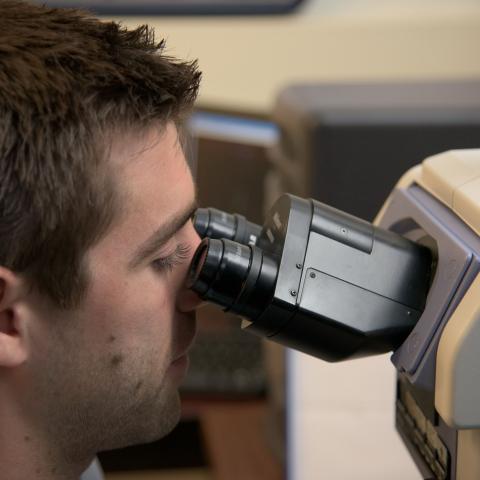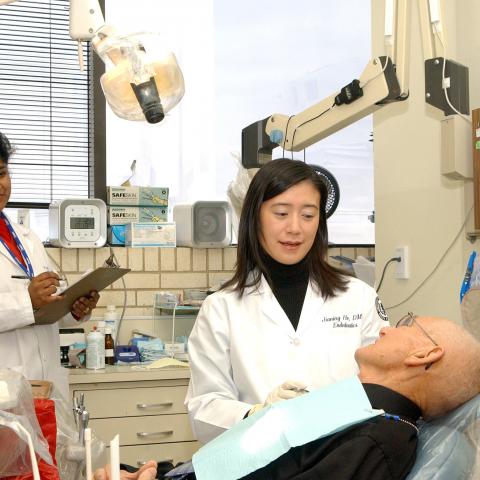Preamble:
The purpose of the Code of Ethics is to provide a set of guiding principles to promote exemplary ethical standards in research and scholarship by investigators and the International Association for Dental Research (IADR).
The Code of Ethics is predicated on well-established international guidelines, such as the Declaration of Helsinki, and does not take the place of or supersede any rules, agreements, or Bylaws of the Association.
The IADR expects its members to be guided in their professional conduct by this Code. The IADR, through its Committee on Ethics in Dental Research, advises its members regarding interpretation of the Code.
The ability of the scientific community to regulate itself is critical to the maintenance of the public trust. Adherence to the Code is basic to one’s professional responsibility and commitment to an ethical pursuit of knowledge.
Members are expected to cooperate in the implementation of the Code. Misconduct casts doubt on the integrity of individuals, their institutions, and science. It is incumbent upon IADR members to take adequate measures to discourage, prevent, expose and correct unethical conduct.
Members deemed to be in violation of the Code will be sanctioned by the Association.
-
People
- respect human dignity and the value of every person
- show consideration and respect for all components of and individuals associated with the research process
- cultivate an environment whereby differences in perspective, experience and culture are recognized and valued
- promote openness, responsibility, fairness and mutual respect in working together
- ensure that gender, racial, religious or other types of discrimination does not impact the scientific process, including the conduct of investigations and the broader environment in which research is conducted or disseminated
Professionalism
- act with honor and in accordance with the highest standards of professional integrity
- conduct work with objectivity
- communicate in an honest and responsible manner
- maintain appropriate standards of accuracy, reliability, credit, candor and confidentiality in all research and scholarship activities
- maintain high levels of competence
Public
- acknowledge professional and scientific responsibility to society
- strive to advance science and share knowledge in order to contribute to the public good
- value the public’s trust in science and act at all times in such a way as to uphold their trust and confidence.
- use all resources prudently, taking into account appropriate laws and regulations.
-
IADR affirms its commitment to the practice of dental research consistent with promoting the human rights of all people, including members of the association. IADR will strive to use the knowledge and skills embedded in our discipline to advance the cause of human rights, health equity and social justice worldwide, according to the highest ethical standards – remaining respectful of the right of people to benefit from the work our discipline has to offer.
-
Paramount to the public trust in science is the maintenance of good research and scholarship practices that are based on the highest standard of ethics and governance.1 To achieve excellence in research ethics, academic institutions and research organizations rely on their members' professionalism and integrity. Although it is critical for institutions to create means of reporting possible scientific misconduct, the entire research community is responsible for preventing scientific misconduct.
The participation of all researchers in appropriate educational programs of good research practice and mentoring of colleagues and students is critical to maintaining best practices in research and scholarship, and should be facilitated by research organizations.2
-
Research must adhere to the fundamental principles that respect the needs for autonomy, beneficence, and justice as well as veracity, fidelity, anonymity, and nonmaleficence.3 Human subjects research is comprised of, but not limited to, investigative clinical research, clinical trials, studies using tissue samples and records, biogenetics, stem cell research, and investigations utilizing tissue banks. As such, human subjects research requires complete transparency in all aspects of consent and confidentiality.
The World Medical Association (WMA)’s Declaration of Helsinki4 and the Council for International Organizations of Medical Sciences (CIOMS), the World Health Organization (WHO)’s International Ethical Guidelines for Health-related Research Involving Humans,5 and the International Council for Harmonisation6 provide international standards on the conduct of human subjects research. Such standards include principles such as informed consent; collection, storage and use of data; and privacy and confidentiality.
A Research Ethics Committee, Institutional Review Board, Data and Safety Monitoring Board, or equivalent, must oversee all human subjects research. This includes engaging such committees in consideration, comment, guidance and approval before the study begins and throughout the study as appropriate.
It is imperative that investigators be in compliance with national regulations and reporting requirements such as the National Institutes of Health’s Office of Human Subjects Research Protections7 and remain up to date on current legislative changes.
-
The use of animals in research, teaching and testing is a privilege and must fulfill the principle of advancing science and/or contributing to improving human or animal health and welfare.8 Researchers involved with the use of laboratory animals should engage in ethical and humane care. All those involved with the use of animals should be responsible for the well-being of these animals.
Local and international laws and regulations notwithstanding, an animal's overall protection depends upon the scientist's appropriate stewardship. Groups such as "The Association for Assessment and Accreditation of Laboratory Animal Care" (AAALAC) provide guidelines and voluntary accreditation to institutions and programs.9
Similar to Human Research, an Animal welfare committee or equivalent must oversee any animal-related research. Institutions are responsible for training the proper care and use of animals and compliance with ethical guidelines and policies.
As a general principle, animals should be used only if an alternative method has failed. Adherence to the Russell-Burch principle of "3R" are requisites:
- To Replace the use of live animals with non-animal alternatives
- To Reduce the number of animals used in research to the minimum required for meaningful results
- To Refine the procedures so that the degree of suffering is kept to a minimum.10
-
International Collaborative Research and, by extension, the exchange of scientific information helps improve global oral health, a core value of IADR.11 A successful international collaborative initiative must follow the highest standards of ethical practice, adhering to any local and international legislation and regulations. A memorandum of understanding or agreement should be in place to prevent an imbalance of these collaborations. Ethical committee approval in all sites and, when appropriate, written informed consent by study participants in the language of each participant site should be implemented. It is paramount to have additional safeguards to avoid exploitation of the vulnerable, to respect their human rights, and to ensure the relevance of these research partnerships.12
IADR encourages the use of best practices where transparency, trust and mutual respect among research partners are in place. Relevant to international collaborations, core principles of integrity, trust, purpose and goals should be agreed upon and shared by all participants.13 Those principles should take place in all phases of the research partnership process, from preparation until dissemination of information, which will lead to scientific equity.14,15
-
A potential conflict of interest may arise when an individual’s private interests can influence professional responsibilities. Scientists engage in numerous activities that may have the potential for conflicts of interests, for example participating in the peer review process as a reviewer or member of an editorial board, reviewing grant proposals, and serving on committees and panels.
Conflicts of interest can be financial (when financial circumstances may directly and significantly affect objective judgment), personal (when personal or professional relationships may directly and significantly affect objective judgment), or intellectual (when strong personal or professional views may directly and significantly affect objective judgment).16 Such conflicts of interests can be real or apparent—such that a reasonable person with knowledge of the circumstances would question impartiality in the matter.
Each individual is expected to behave in an ethical way to avoid both real conflict of interests and the appearance of conflict of interests, or disclose such conflicts of interests when they cannot be avoided. This includes full disclosure of any potential conflict of interest to the investigator's institution, to the Associations as applicable, and to other agencies as requested. Individuals should abide by any management terms requested by such agencies when requested in order to address conflicts of interests.
-
Publishing
Ethical Considerations for Journal Editors, Editorial Boards, and Managing Editors
Editors, editorial boards and managing editors should:
- develop policies to minimize the publication of articles containing evidence of scientific misconduct, maximize transparency and minimize redundancy, and make such policies available on their website. Many aspects to be included in such policies are addressed by the Council of Scientific Editors (CSE) White Paper on Publication Ethics,17 the Committee on Publications Ethics (COPE) guidelines18 and core practices,19 the World Association of Medical Editors (WAME),20 and the Center for Open Science21
- follow theCOPE Guidelines for Managing the Relationships Between Society Owned Journals, their Society, and Publishers22 and the WAME Recommendations on Publication Ethics Policies: Relation of the Journal to the Sponsoring Society23 in instances where journals are published by professional societies, so as to address editorial independence, journal management, commercial issues, and other matters
- have policies and processes in place for or disclosure and management of conflicts of interest, in alignment with guidance provided by the International Committee of Medical Journal Editors24
- consider applying current transparency and standardization trends for study reporting guidelines, such as are available through the EQUATOR Network25
- make acceptance decisions based only on a manuscript’s innovation, importance, originality, clarity, and relevance to the journal's scope and content. Studies with negative results or challenging previously published work should receive equal consideration
- provide guidance as to whether posting a manuscript on a non-commercial preprint server is allowable and not considered previously published26
Ethical Considerations for Authors
It is expected that authors, in any communication, such as manuscripts or abstracts, whether in paper or electronic format, representing a body of research should:
- credit sources of funding
- adhere to guidelines regarding qualification and order of authorship such as the International Committee of Medical Journal Editors (ICJME) Defining the Role of Authors and Contributors27
- read the final manuscript and agree to its submission for review and publication
- ensure the integrity of their research
- present appropriate written permission to publish any type of clinical image, which should not identify the participant
- submit original work that has not been previously published. Previous publication of an abstract during the proceedings of meetings (in print or electronically) does not preclude subsequent submission for publication, but full disclosure should be made at the time of submission
- understand and abide by the selected journal’s policies
Likewise, authors should not:
- inappropriately fragment data into several different publications
- inappropriately or fraudulently manipulate images and/or data28
- engage in plagiarism or self-plagiarism29–32
- engage in ghostwriting33
Submissions to IADR’s Journal of Dental Research and JDR Clinical and Translational Research or other Association publications should adhere to Sage Publishing’s Statement on Publishing Ethics and Responsibility.34
Ethical Considerations for Peer Review
Both editorial bodies and peer reviewers should:
- abide by the COPE Ethical Guidelines for Peer Reviewers,35 the CSE Statement on Reviewer Roles and Responsibilities,36 and the WAME Recommendations on Publication Ethics Policies for Peer Review.37
- treat all submitted manuscripts as confidential, and not discuss, share, retain, or copy content, and not use such content for personal or professional purposes prior to publication
- report suspicion of misconduct to the editor in confidence
- disclose any potential conflicts of interest preventing an objective review to the editor for adjudication or decline the review invitation
-
Investigators submitting content to conferences should follow the conference policy for submissions. Commonly, scientific programs place requirements that abstracts submitted not be previously published & presented in another scientific conference, as this is a form of self-plagiarism.32 Likewise, there may be regulations that research presented in such abstracts may not be part of a manuscript published in electronic or print form prior to the conference presentation. Many consider posting on a non-commercial preprint server as not being previously published; thus, in this situation, the investigator must investigate the conference policies to determine if this is allowable.
-
IADR strongly condemns discrimination, including actions--made either directly or indirectly--based on distinctions or prejudices which have the purpose or effect of treating individuals or groups unfairly or unjustly. The Association is committed to:
- upholding the principles of diversity, equity and inclusion
- being inclusive to the largest number of contributors, with the most varied and diverse backgrounds possible
- providing a friendly, safe and welcoming environment for all, regardless of age, gender, sexual orientation, gender identity & expression, ability, ethnicity, socioeconomic status, health conditions, or religion
- valuing equally different behaviors, aspirations and needs of all diverse groups, and treating individuals equally with respect to rights, responsibilities and opportunities.
Members should:
- uphold the principles of diversity, equity and inclusion as stated in the AADOCR American Association for Dental Research Statement on Equity and Inclusion38
- strive to eliminate bias from professional activities and research
- not tolerate any forms of discrimination
- be sensitive to cultural, individual, and role differences
- acknowledge the rights of others to hold values, attitudes and opinions that differ from their own
- foster a workplace that embraces the dignity and diversity of individuals
-
Harassment consists of a single intense and severe act or multiple persistent acts, any of which are demeaning, abusive, offensive, or create a hostile professional or workplace environment. Acts of harassment can be based on age, race, socioeconomic status and socioeconomic origins, ethnicity, national origin, religion, sexual orientation, gender identity, gender expression, disability, health conditions, political affiliation, marital status, domestic status, parental status, or any other applicable basis proscribed by law.
Sexual harassment can be either “quid pro quo” (submission or refusal to submit to unwelcome sexual attention, requests for sexual favors, and/or other verbal or physical conduct of a sexual nature affects professional decisions) or “hostile work environment” (sexually oriented conduct that interferes with an individual’s job performance or has the purpose or effect of creating an intimidating, hostile, or offensive work environment).
IADR seeks to promote an environment free from harassment, in which staff and members avoid behaviors that may create an atmosphere of hostility or intimidation. As such, members should not engage in any type of harassment whatsoever. Additionally, all participants at any IADR meeting, or any division meeting, should abide by the AADOCR Professional Conduct at Meetings Policy39 in all venues, including ancillary events and official and unofficial social gatherings.
-
Workplace bullying is defined as behavior and mistreatment that demeans, intimidates, or humiliates, and can cause physical or emotional harm. Such behavior can be a single incident or a repeated pattern.
Examples of bullying behaviors include verbal bullying (threatening, slandering, ridiculing, making abusive or offensive remarks), physical bullying (actual or threatened assault or damaging a person’s work area or property), gesture bullying (nonverbal threatening gestures), psychological (intentional and purposeful mental abuse) or sabotaging an individual’s work.40
Any instance of workplace bullying directed toward colleagues or study subjects is not acceptable.
Exercising appropriate authority, directing the work of others pursuant to their job responsibilities, and respectful scientific debate are not considered bullying behavior.
-
Many funding agencies and research institutions require periodic training on ethical conduct of research to ensure compliance with current research standards, especially pertaining to human subjects and animal research. Such training should include standards of intellectual honesty in conduct and reporting of scientific research and should frame ethics as the foundation for doing good science.
-
IADR reserves the right to sanction members for scientific misconduct, including violation of this Code of Ethics. IADR membership may be suspended or terminated "for proven scientific misconduct" (IADR Constitution, Article VI, Section 3(B), 2019).41 Any allegations of misconduct will be kept confidential by the staff, leadership and governing bodies involved in the adjudication process.
All reports of alleged violations of the IADR Code of Ethics by a current member, or any attendee of an IADR-sponsored meeting or activity, should be made confidentially to the IADR Board through the Association’s Chief Executive Officer (CEO). The IADR Board may refer the report to the IADR Ethics Committee to review the circumstances, investigate the allegations, and make a recommendation to the IADR Board of Directors on potential sanctions. Sanctions will not be implemented without prior approval of the IADR Board of Directors.
All reports of alleged publication misconduct pertaining to one of the IADR journals (JDR,JDR-CTR, or others) should be made to the corresponding journal’s Editor-in-Chief (EIC). The EIC, in consultation with the Journal’s Editorial Board, has the jurisdiction to investigate the allegation in accordance with the Committee on Publication Ethics (COPE) Flowcharts,42 and will decide the appropriate course of action. Any confirmed cases of publication misconduct will be communicated to the IADR Board so that the Board can assess if the allegations also justify referral to the Ethics Committee for consideration of IADR sanctions.
In the event that a complaint alleges conduct that is, or may be, the subject of other legal or institutional proceedings, the IADR Board or the JDR/JDR-CTR Editor-in-Chief may, in consultation with the IADR President and CEO, further defer its proceedings with respect to the complaint until the conclusion of the other legal or institutional proceedings. The findings of those proceedings may be used as a basis for considering IADR actions.
-
“Whistleblowing” is the disclosure by an individual of confidential information, which relates to some fraud, danger or other illegal or unethical conduct connected with scientific research. Whistleblowing may be seen as a means to deter wrongdoing, promote transparency and good governance, underpin regulation and maintain professional and public confidence. A “whistleblower” is a person who alleges misconduct.
Members have an obligation to report wrongdoing to the proper authority, be it their home institution and/or IADR. A whistleblower should not suffer retaliatory consequences when such actions are done in good faith based on suspected wrongdoing. Organizations have the responsibility to protect whistleblowers against retaliation and investigate and address wrongdoing.
-
All officers*, administrators, and staff of the IADR shall:
- respect the rights and reputation of the IADR, and the privacy of the membership;
- hold Association information in confidence;
- communicate in an honest and responsible manner regarding sponsorship or certification by the IADR;
- not solicit or use recommendations or testimonials from agents nor use their relationships with agents to promote commercial expertise of any kind;
- seek approval of the appropriate authority of IADR to communicate advertisement to the public by written or audio-visual means; and
- state accurately, objectively, and without misrepresentation their professional qualifications, affiliations, and functions as well as those of the IADR with which they or their statements are associated. They shall correct the misrepresentations of others with respect to those matters.
* Officers of IADR include individuals with responsibility from headquarters, federations, divisions, sections and groups
-
- Institute of Medicine, National Academy of Engineering, National Academy of Sciences & Committee on Science, Engineering, and Public Policy. On Being a Scientist: A Guide to Responsible Conduct in Research: Third Edition. (National Academies Press, 2009).
- Good research practice: Principles and guidelines. Medical Research Council Ethics Series https://mrc.ukri.org/publications/browse/good-research-practice-principles-and-guidelines/ (2012).
- Beauchamp, T. L. & Childress, J. F. Principles of Biomedical Ethics. (Oxford University Press, 2019).
- World Medical Association Declaration of Helsinki – Ethical Principles for Medical Research Involving Human Subjects. https://www.wma.net/policies-post/wma-declaration-of-helsinki-ethical-principles-for-medical-research-involving-human-subjects/ (2018).
- Council for International Organizations of Medical Sciences (CIOMS) and the World Health Organization (WHO). International Ethical Guidelines for Health-related Research Involving Humans. https://cioms.ch/wp-content/uploads/2017/01/WEB-CIOMS-EthicalGuidelines.pdf.
- International Council for Harmonisation (ICH). https://www.ich.org/ doi:10.1142/9789813278851_0047.
- NIH Office of Human Subjects Research Protections. https://irbo.nih.gov/confluence/.
- McCarthy, C. R. Bioethics of laboratory animal research. ILAR Journal vol. 40 1–37 (1999).
- National Research Council, Division on Earth and Life Studies, Institute for Laboratory Animal Research & Committee for the Update of the Guide for the Care and Use of Laboratory Animals. Guide for the Care and Use of Laboratory Animals: Eighth Edition. (National Academies Press, 2011).
- Russell, W. M. S. & Burch, R. L. The Principles of Humane Experimental Technique. (1959).
- International Association for Dental Research: Who We Are. https://www.iadr.org/IADR/About-Us/Who-We-Are.
- Shapiro, H. T. & Meslin, E. M. Ethical Issues in the Design and Conduct of Clinical Trials in Developing Countries. New England Journal of Medicine vol. 345 139–142 (2001).
- Montreal Statement on Research Integrity in Cross-Boundary Research Collaborations. https://wcrif.org/documents/354-montreal-statement-english/file.
- Nyström, M. E., Karltun, J., Keller, C. & Andersson Gäre, B. Collaborative and partnership research for improvement of health and social services: researcher’s experiences from 20 projects. Health Research Policy and Systems vol. 16 (2018).
- Beran, D. et al. Research capacity building—obligations for global health partners. The Lancet Global Health vol. 5 e567–e568 (2017).
- US Department of Health and Human Services, Office of Research Integrity. Personal and Intellectual Conflicts. https://ori.hhs.gov/Chapter-5-Conflicts-of-Interest-personal-and-intellectual-conflicts.
- Council of Science Editors. White Paper on Publication Ethics. https://www.councilscienceeditors.org/resource-library/editorial-policies/white-paper-on-publication-ethics/.
- Commission on Publication Ethics (COPE). COPE Guidelines. https://publicationethics.org/guidance/Guidelines.
- Commission on Publication Ethics (COPE). Core Practices. https://publicationethics.org/core-practices.
- World Association of Medical Editors (WAME). Recommendations on Publication Ethics Policies for Medical Journals. http://wame.org/recommendations-on-publication-ethics-policies-for-medical-journals.
- Transparency and Openness Promotion (TOP) Guidelines. https://osf.io/9f6gx/ (2014).
- Commission on Publication Ethics (COPE). Guidelines for Managing the Relationships Between Society Owned Journals, their Society, and Publishers. https://publicationethics.org/files/guidelines-managing-relationships-societyjournals-society-publishers-v1.pdf.
- World Association of Medical Editors (WAME). Recommendations on Publication Ethics Policies for Medical Journals: Relation of the Journal to the Sponsoring Society. https://wame.org/recommendations-on-publication-ethics-policies-for-medical-journals#Relation%20to%20the%20Journal
- International Committee of Medical Journal Editors-Conflict of Interest Form. http://www.icmje.org/conflicts-of-interest/.
- The EQUATOR Network. https://www.equator-network.org/.
- Council of Science Editors. Editor Roles and Responsibilities. https://www.councilscienceeditors.org/resource-library/editorial-policies/white-paper-on-publication-ethics/2-1-editor-roles-and-responsibilities/
- International Committee of Medical Journal Editors (ICJME). Defining the Role of Authors and Contributors. http://www.icmje.org/recommendations/browse/roles-and-responsibilities/defining-the-role-of-authors-and-contributors.html
- Council of Science Editors. Digital Images and Misconduct. https://www.councilscienceeditors.org/resource-library/editorial-policies/white-paper-on-publication-ethics/3-4-digital-images-and-misconduct/
- Commission on Publication Ethics (COPE). Self plagiarism. https://publicationethics.org/case/self-plagiarism.
- Commission on Publication Ethics (COPE). COPE Guidelines: Text recycling guidelines for editors. https://publicationethics.org/resources/guidelines-new/text-recycling-guidelines-editors-0.
- World Association of Medical Editors (WAME). Recommendations on Publication Ethics Policies for Medical Journals: Plagiarism. http://wame.org/recommendations-on-publication-ethics-policies-for-medical-journals#Plagiarism.
- US Department of Health and Human Integrity Office of Research Integrity. Self-plagiarism Within and Across Various Other Dissemination Domains. https://ori.hhs.gov/self-plagiarism-within-and-across-various-other-dissemination-domains.
- World Association of Medical Editors (WAME). Ghost Writing Initiated by Commercial Companies. http://wame.org/ghost-writing-initiated-commercial-companies.
- SAGE Publishing Ethics & Responsibility. https://uk.sagepub.com/en-gb/eur/ethics-responsibility (2015).
- Committee on Publication Ethics. COPE Ethical Guidelines for Peer Reviewers. https://publicationethics.org/files/Ethical_Guidelines_For_Peer_Reviewers_2.pdf.
- Council of Science Editors. CSE- Reviewer Roles and Responsibilities - Council of Science Editors. https://www.councilscienceeditors.org/resource-library/editorial-policies/white-paper-on-publication-ethics/2-3-reviewer-roles-and-responsibilities/.
- World Association of Medical Editors. WAME Recommendations on Publication Ethics Policies for Medical Journals. http://wame.org/recommendations-on-publication-ethics-policies-for-medical-journals#Peer%20Review.
- American Association for Dental, Oral, and Craniofacial Research (AADOCR) Statement on Equity and Inclusion. International Association for Dental Research https://www.iadr.org/about/news-reports/press-releases/american-association-dental-research-statement-equity-and
- American Association for Dental, Oral, and Craniofacial Research (AADOCR) Professional Conduct at Meetings Policy. https://www.iadr.org/events/event-policies/professional-conduct-meetings-policy
- AAS Code of Ethics: Bullying. https://aas.org/policies/ethics#bullying.
- International Association for Dental Research (IADR) Constitution. https://www.iadr.org/iadrbylaws
- Commission on Publication Ethics (COPE). Core Practices Flowcharts. https://publicationethics.org/guidance/Flowcharts?classification=2771.
- Institute of Medicine, National Academy of Engineering, National Academy of Sciences & Committee on Science, Engineering, and Public Policy. On Being a Scientist: A Guide to Responsible Conduct in Research: Third Edition. (National Academies Press, 2009).
Questions about the Code of Ethics?





